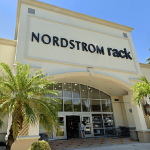The aftershocks of Chinas devastating earthquake are now rumbling through the sporting goods supply chain, particularly among outdoor recreation vendors catering to mass merchant, warehouse and discount retailers.
The PRCs efforts to rush tents to an estimated 5 million people left homeless by the May 12 earthquake has disrupted shipments to the United States and forced one vendor to add shifts and pay overtime. The government has said it needs 3.3 million tents to house survivors and thinks Chinese domestic manufacturers can supply 2 million of those. The rest will have to come from overseas.
Makers of high-end backpacking tents have been largely immune from the impact, but providers of larger, four-person car camping tents for the mass market are being affected. Had the earthquake come two months earlier, when shipments of spring and summer product were peaking, it would have had a much bigger impact. Still, it is impacting fill-in orders and shipments for fall.
“Things have definitely backed up,” said Armen Kouleyan, president of Exxel Outdoors, which sells sleeping bags, watersport vests, tents and wetsuits to Wal-Mart, Target, Dicks Sporting Goods, Academy Sports & Outdoors, Big 5 Sporting Goods and other mass merchants.
Kouleyan said the PRC government is pressuring factories to reallocate their tent production to the relief effort. In Exxels case, customs withheld the companys export license on a shipment of 3,000 tents headed for the United States. Rather than appeal it, Exxel donated 1,000 of the tents and sold another 1,700 at cost to the government, which let about 300 through to the United States.
“They bought a bunch of product that was allotted for us and I just told our customers, You know what? This is a humanitarian issue, and the customers have been very understanding,” said Kouleyan. “Normally I would be lynched.”
Chinese suppliers have assured Exxel there are no risk to its July shipments and conditions should be back to normal long before shipments peak again in August and September.
North Pole Ltd., a Hong Kong-based company, has had to bring on extra shifts and pay overtime to accommodate the governments relief efforts, said CEO Steven Fleischli. The company makes tents, sleeping bags, air mattresses, foldable furniture, coolers and other products at its factory in Xiamen.
“I would not say we had to withhold shipments, but there was a definite sense of pressure from the government of China that we need X number of units and we need them by such a date,” Fleischli said.
The China Daily reported last week that the governments civil affairs agency had ordered 900,000 tents from 75 Chinese factories for delivery by June 20.
The quake hit as North Pole was winding down tent manufacturing and gearing up for the fall tailgating season, when it ships thousands of foldable chairs, coolers and gazebos under licensing agreements with the NFL and colleges.
“There were some comments from China saying we might have to delay and my response was absolutely not,” said Flieschli.
Instead, North Pole added shifts, worked overtime and brought in contractors.
“For the most part, weve been able to squeeze stuff in while keeping our current business intact,” said Fleischli.
North Pole estimates it has provided 30,000 tents, canopies, sleeping bags and pieces of furniture to relief efforts since May 13. Left over inventory from 2007 was either donated or sold to retail customers who donated it. The company has sold the rest to the government at cost.
The more disconcerting concern now worrying companies is the inflationary impact of what is destined to be a long and gargantuan reconstruction effort.
“It has probably exacerbated inflation,” Kouleyan said of the earthquake. “Weve noticed that inflation-wise, there has been a definite spike in the price of polyester fabric and petroleum based raw materials.”
Fleischli is concerned steel could be next.
Many manufacturers were looking forward to steel prices falling after the Summer Olympics as the government reopened several steel mills closed in a bid to clean the air around Beijing. But reconstruction efforts could keep steel prices high for years. Thats disconcerting to Fleischli, since North Poles gazebos are built with steel.
Rising commodity prices combined with Chinas new labor laws, lower VAT tax rebates and appreciating currency are making China less attractive.
“What youve seen in the last one to two years is literally thousands of manufacturers go under or move,” Fleischli said. “We are increasing our capacity in Bangladesh. You just dont know with how China is going the last two years. Youve got to plan for the worst.”
>>> Rumors are now circulating that the PRC may slow reforms including steep cuts in its VAT rebates to exporters in a bid to slow the loss of manufacturing















